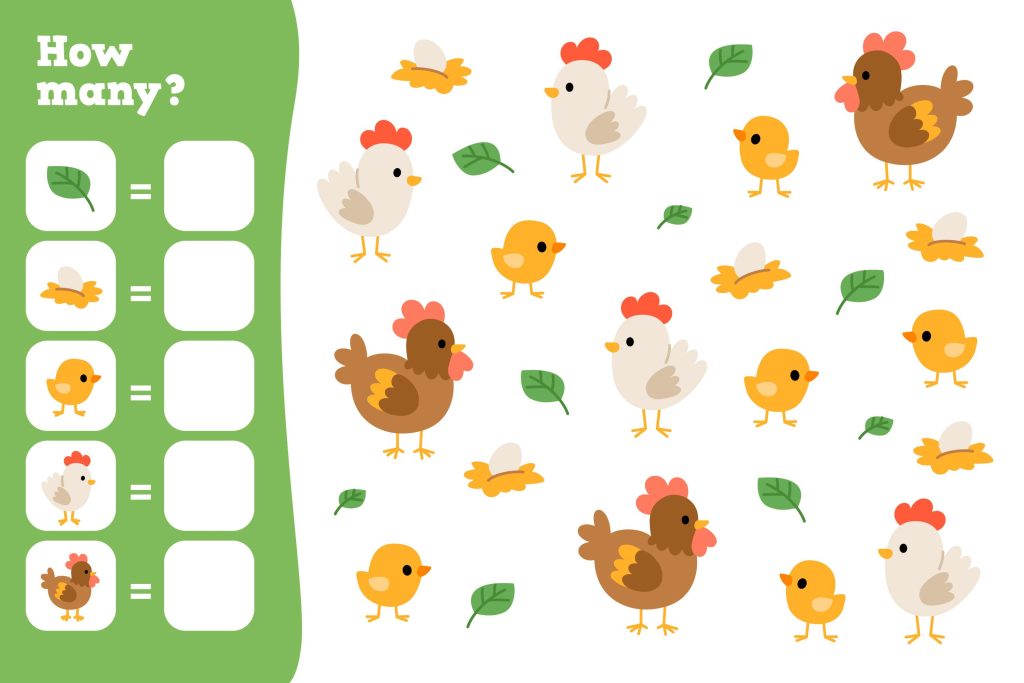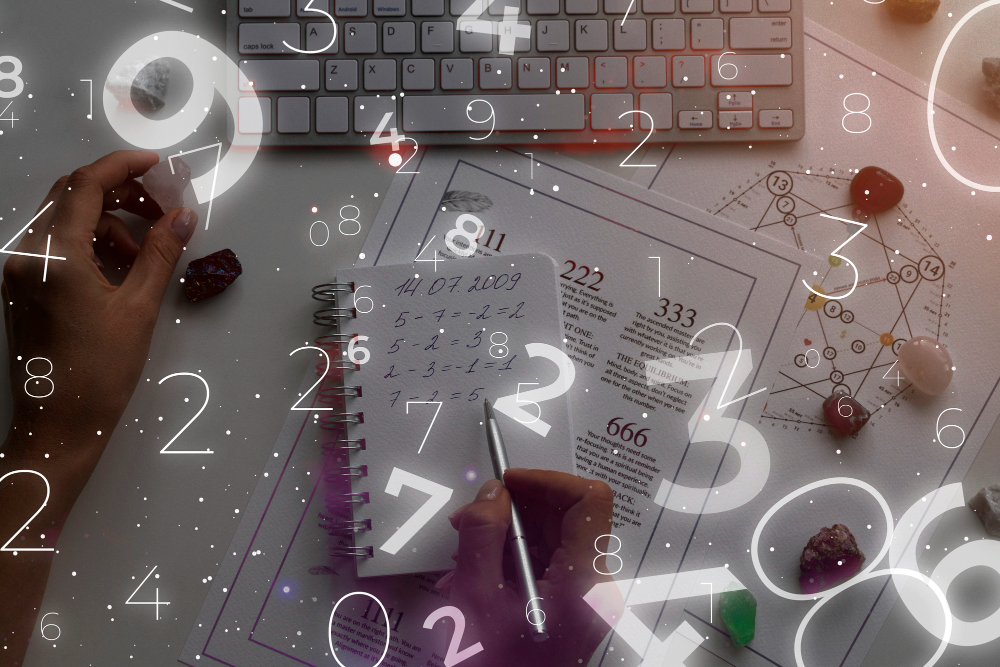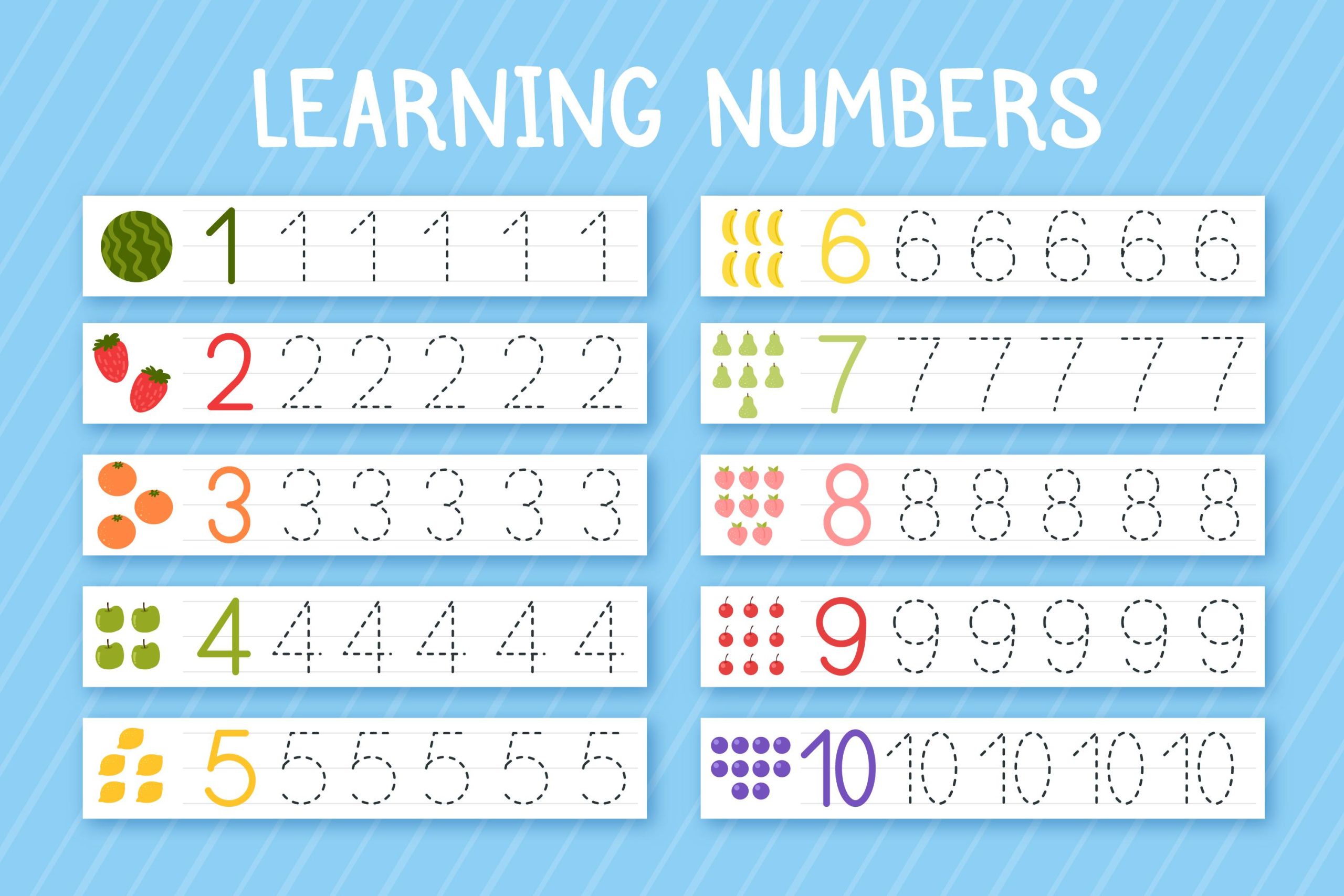Mathematics is an essential element of early education, serving as a vital building block for developing critical thinking and problem-solving skills in young learners.
These worksheets are more than just tools for learning basic arithmetic; they are gateways to a world of logical reasoning and analytical thinking. Through engaging and thoughtfully designed worksheets, children learn to recognize patterns, understand the significance of numbers, and begin to unravel the mysteries of basic operations like addition and subtraction.
This learning process is instrumental in nurturing not just mathematical proficiency but also a broader set of cognitive abilities, including memory enhancement, attention to detail, and the ability to apply learned concepts to new situations. The incorporation of math worksheets in early education is a strategic approach to instill a love for numbers and an eagerness to explore more complex mathematical concepts in future academic pursuits. Their use in classrooms or at home is a testament to the enduring value of mathematics in shaping young minds and preparing them for the intellectual demands of the future.
Advantages of Using 1st Grade Math Worksheets For Kids

1. Enhances Fundamental Math Concepts
First-grade math worksheets are invaluable in cementing the basics of mathematics. They introduce young learners to the world of numbers, fostering an early appreciation for addition and subtraction. Through engaging exercises, children learn to navigate numerical landscapes, laying a strong foundation for future, more complex math learning.
2. Promotes Self-Directed Learning
These worksheets empower children to take charge of their learning journey. As they work through problems at their own pace, they develop a sense of independence and responsibility. This self-directed approach instills a lasting love for learning, encouraging students to explore and understand mathematical concepts on their own terms.
3. Boosts Problem-Solving Skills
Regularly tackling math worksheets sharpens young minds, enhancing their ability to think critically and solve problems effectively. Each worksheet is a new puzzle, a challenge that encourages logical thinking and creative solutions, skills that are essential not just in math but in everyday life.
4. Diverse Learning Styles
Recognizing that every child learns differently, math worksheets are designed to engage various learning styles. Whether a child is a visual learner, prefers hands-on activities, or learns best through auditory methods, these worksheets offer something for everyone, ensuring no child is left behind.
5. Stimulates Cognitive Development
Engaging with math worksheets is like a workout for the brain. It enhances various cognitive skills such as memory, attention to detail, and logical reasoning. These mental exercises are crucial in developing a sharp, alert mind ready to tackle more complex subjects in the future.
6. Builds Mathematical Confidence
Completing these worksheets gives children a sense of achievement, significantly boosting their confidence in their math skills. This newfound confidence encourages them to approach math problems with enthusiasm and reduces anxiety around learning new and challenging concepts.
7. Improves Concentration
Math worksheets require a level of focus and concentration that is vital for academic success. As children work through these problems, they learn to concentrate for longer periods, enhancing their ability to focus on all areas of study.
8. Prepare for Future Math Challenges
Starting with simple arithmetic and gradually increasing in complexity, these worksheets prepare children for future mathematical challenges. They lay a robust foundation, making the transition to advanced math concepts smoother and less intimidating.
9. Facilitates Practice and Mastery
Through repetition and varied problem sets, math worksheets provide a platform for thorough practice. This repeated exposure helps children master the basics of math, ensuring they have a solid grasp of key concepts before moving on to more advanced topics.
10. Links Math to Everyday Life
These worksheets often include scenarios that children can relate to, linking math concepts to real-world situations. This approach helps demystify math, showing young learners the practical applications of what they are learning and making math more engaging and less abstract.
11. Encourages Parental Involvement
Math worksheets are a fantastic way for parents to get involved in their child’s education. Working together on these problems can strengthen the parent-child bond and provide parents with a hands-on opportunity to understand and support their child’s learning process.
12. Adaptable to Individual Learning Needs
The flexibility of math worksheets allows them to be tailored to meet each child’s unique learning needs. Whether a child needs more challenge or extra support, these worksheets can be adjusted, ensuring that each student receives the right level of engagement for their learning journey.
13. Incorporates Fun in Learning
Far from being just a series of numbers and equations, these worksheets are designed with fun in mind. They often include colorful illustrations, engaging scenarios, and interactive elements that turn learning math into an enjoyable and exciting adventure, sparking curiosity and a desire to explore more.
Types of 1st Grade Math Worksheets For Children

1. Number Recognition Worksheets
These worksheets are foundational in introducing children to numbers. They focus on identifying, writing, and understanding the sequence and value of numbers. Activities may include coloring by numbers, matching numbers to sets of objects, or arranging numbers in the correct order, helping students become familiar with numerals in a fun and engaging way.
2. Basic Addition Worksheets
Introducing the concept of adding numbers, these worksheets use simple problems with visual aids like pictures or number lines. They are designed to build confidence in basic arithmetic, often starting with single-digit addition and progressing to more complex problems.
3. Counting Worksheets
Essential for developing basic numeracy skills, these worksheets help children practice counting objects, and numbers in sequence, and even skip counting by 2s, 5s, or 10s. They often include visual aids like pictures or dot-to-dot activities, making counting a tangible and enjoyable experience.
4. Money Recognition and Value Worksheets
Teaching the recognition and value of coins, these worksheets often incorporate real-life scenarios like shopping or saving. Children learn to identify different coins and understand their values, sometimes using simple addition or subtraction to work with money amounts.
5. Basic Subtraction Worksheets
These worksheets focus on teaching the fundamentals of subtraction. Using objects, pictures, or number lines for visualization, they guide students through the process of ‘taking away’ and understanding the concept of subtraction in a practical, approachable manner.
6. Shape Identification Worksheets
These worksheets help children recognize and name basic geometric shapes like circles, squares, triangles, etc. Activities may include coloring shapes, matching shapes to objects in their environment, or drawing shapes, enhancing their understanding of geometry from an early age.
7. Comparison Worksheets
These worksheets involve comparing sizes, lengths, and quantities, and developing observational and reasoning skills. Children learn to use terms like bigger, smaller, longer, shorter, more, and less, which are essential for describing and comparing objects in their world.
8. Pattern Recognition Worksheets
Aimed at enhancing logical thinking, these worksheets engage children in identifying and completing patterns. Using shapes, colors, or numbers, helps develop a child’s ability to recognize sequences and predict what comes next, fostering early analytical skills.
9. Matching Worksheets
Focusing on matching exercises, these worksheets help reinforce learning by having children match numbers to sets of objects or math problems to their correct solutions. This type of worksheet enhances memory and recognition skills in a simple yet effective way.
10. Measurement Worksheets
Focusing on non-standard units of measurement, such as using blocks to measure length or pencils to compare heights, these worksheets introduce concepts of length, height, weight, and volume. They help children grasp basic measurements in a tangible and relatable way.
11. Simple Graphing Worksheets
Introducing basic data representation, these worksheets teach children how to interpret and create simple bar or picture graphs. They turn abstract data into visual formats, making it easier for young learners to understand and analyze information.
12. Time-Telling Worksheets
These worksheets help children learn the basics of reading time on analog clocks. Focusing on whole and half-hour increments, they often include drawing hands-on clocks or matching times to daily activities, providing a practical approach to learning how to tell time.
13. Flashcards
While not traditional worksheets, math flashcards are an effective tool for quick practice of basic math facts. They are great for reinforcing learning, and enhancing memory, and can be used in a variety of engaging and interactive ways.
14. Word Problem Worksheets
These worksheets help children apply math to real-life situations. Presented in sentence form, word problems incorporate basic arithmetic skills, encouraging students to read, comprehend, and solve math problems in a context they might encounter in everyday life.
15. Coloring Math Worksheets
Merging math with art, these worksheets require children to solve math problems and use specific colors for the answers. This creative approach not only makes math enjoyable but also helps reinforce their learning through a fun and interactive method.
16. Fraction Basics Worksheets
Introducing the concept of fractions, these worksheets use visual representations, like parts of a whole or group, to explain basic fractions. They are a gentle introduction to a complex mathematical concept, making it accessible and understandable for young minds.
17. Sequencing Numbers Worksheets
Essential for understanding number order, these worksheets involve arranging numbers in the correct sequence. They help children grasp the concepts of before, after, and between numbers, reinforcing their understanding of number placement and order.
18. Interactive Math Worksheets
Leveraging digital tools or physical manipulatives, these worksheets provide an interactive approach to learning math. Available on educational platforms, they often include games or puzzles, making learning dynamic and engaging.
19. Sorting and Categorizing Worksheets
These worksheets help develop organizational skills by encouraging children to sort objects or numbers based on different attributes like shape, size, or color. This type of activity enhances logical thinking and pattern recognition.
20. Crossword and Puzzle Worksheets
Incorporating math into puzzles and crosswords, these worksheets make learning a fun challenge. They help reinforce math skills while simultaneously developing vocabulary and problem-solving abilities.
Online Resources and Websites for Finding Free 1st Grade Math Worksheets

1. Starfall Education (starfall.com)
Starfall’s math resources are known for their simplicity and effectiveness. The site offers a range of activities that focus on foundational math skills, perfect for 1st graders beginning their math journey.
2. Cool Math Games (coolmathgames.com)
While renowned for its games, Cool Math Games also offers worksheets that are just as engaging. These resources make learning foundational math concepts an exciting challenge for 1st graders.
3. Khan Academy (khanacademy.org)
Perfect for beginners in math, Khan Academy offers a friendly approach to 1st-grade math. Their worksheets and interactive activities focus on basic concepts like addition, subtraction, and counting. The video explanations are clear and engaging, making complex ideas understandable for young learners.
4. SplashLearn (splashlearn.com)
SplashLearn brings a splash of fun to math with its colorful and interactive worksheets. First graders will find themselves immersed in games that teach them counting, simple addition, and basic geometry, all while they’re having a great time.
5. IXL Learning (ixl.com)
IXL specializes in providing personalized worksheets that adapt to a child’s learning level. For 1st graders, this means a gradual introduction to math basics, with each worksheet designed to build confidence and mastery in essential skills like basic arithmetic and number patterns.
6. Education.com (education.com)
Education.com is a fantastic source for printable worksheets. Their 1st-grade math resources include a wide variety of topics, from basic number sense to early geometry, all designed to be engaging and easy to follow.
7. Mathletics (mathletics.com)
Mathletics combines fun and learning with engaging worksheets and activities. Their content is perfectly tailored to meet the curriculum needs of 1st graders, making learning math not just educational but also enjoyable.
8. Prodigy Math Game (prodigygame.com)
Prodigy turns math into an adventure game, making it a huge hit with kids. The math worksheets are cleverly integrated into the gameplay, teaching 1st-grade math skills in an environment that feels more like play than study.
9. ABCmouse.com (abcmouse.com)
ABCmouse.com is a source of activities for young learners. Their math section is packed with interactive worksheets that cover everything from counting to basic arithmetic, all presented in a way that’s easy for 1st graders to grasp and enjoy.
10. PBS Kids (pbskids.org)
PBS Kids is an excellent platform for 1st graders, offering math games and activities featuring beloved children’s characters. The site turns learning basic math into an enjoyable experience, filled with familiar faces and stories.
11. Funbrain (funbrain.com)
Funbrain offers a variety of math games and activities that are perfect for first graders. These resources combine fun and learning, ensuring that math concepts are absorbed in an enjoyable and stress-free manner.
12. Math Playground (mathplayground.com)
Math Playground is perfect for 1st graders who love solving puzzles. The site’s math games and activities encourage critical thinking and make practicing basic math skills fun and interactive.
13. Turtle Diary (turtlediary.com)
Turtle Diary offers a mix of games and worksheets that effectively cover 1st-grade math topics. Their resources are not only educational but also creatively designed to hold a young learner’s attention.
Conclusion
1st grade math worksheets are really important for young kids. They help start a strong base in math, teaching kids how to solve problems and think logically. These worksheets make learning fun and encourage kids to keep exploring and enjoying math. This early start in math is great for their future learning in school and helps them feel confident about their math skills.
FAQs
1st grade math worksheets should encompass key foundational concepts such as basic addition and subtraction, number recognition up to at least 100, understanding and creating simple patterns, recognizing basic shapes, and an introduction to time and money concepts. These worksheets are crucial for building a strong mathematical base, ensuring that children grasp these essential concepts through engaging and age-appropriate activities. Including real-world examples in these worksheets can help children understand the practical application of these skills.
Including word problems in 1st grade math worksheets is crucial as it helps develop critical thinking and problem-solving skills. Word problems require children to read, comprehend, and then apply mathematical concepts to solve a problem, which integrates literacy skills with math. This not only helps in understanding math in a real-world context but also lays the foundation for more complex mathematical reasoning and logical thinking in the future. It’s a skill that goes beyond mere number manipulation and delves into applying math in everyday life scenarios.
To cater to various learning styles, 1st grade math worksheets should incorporate a mix of visual elements, hands-on activities, and storytelling. For visual learners, worksheets with colorful illustrations and diagrams are beneficial. Kinesthetic learners will benefit from worksheets that involve physical activities or manipulatives. Auditory learners can be supported with instructions that can be read aloud or with worksheets that pair with instructional videos or songs. This diverse approach ensures that every child finds a comfortable and effective way to learn.
Digital math worksheets for 1st graders offer interactive and multimedia elements that can significantly enhance the learning experience. These digital platforms often include engaging animations, instant feedback, and adaptive learning paths that personalize the experience for each child. Interactive elements like drag-and-drop, clickable options, and virtual manipulatives make learning more dynamic and enjoyable. Moreover, digital worksheets can be accessed from various devices, making learning flexible and easily accessible.
When choosing 1st grade math worksheets, look for variety and alignment with educational standards. The worksheets should cover a range of topics appropriate for the 1st-grade level. Ensure they are visually engaging and not too overwhelming in terms of content per page. It’s also beneficial to choose worksheets that progress in difficulty, offering both review and challenging new concepts. Consider your child’s interests worksheets with themes or characters they like can make learning more enjoyable. Seek out resources that provide answer keys to facilitate correct guidance.
Parents play an important role in effectively utilizing 1st-grade math worksheets. They can provide encouragement and support, helping their child understand and complete the worksheets. Parents can turn these activities into a fun learning experience by incorporating games or real-life examples. Their involvement also offers a chance to observe and understand their child’s learning style and areas where they might need extra help. Parents can bridge learning from worksheets to practical applications in everyday life, reinforcing the skills learned.


































































